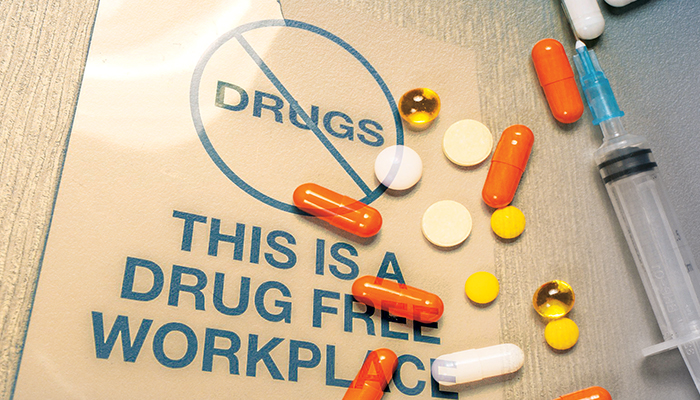Thirty-three percent. According to the Small Business Administration (SBA), 33 percent is the amount of productivity companies lose when they hire employees with drug and alcohol problems.
A related study by the SBA also points to the increased risk of theft, the higher insurance premiums and the serious security threats that can result from these hires. The best way to mitigate these risks? Adopt a comprehensive drug-free workplace program. Drug and alcohol testing programs are already commonplace in the transportation industry. After all, it’s a requirement for many DOT-regulated businesses.
But what about non-DOT regulated employees such as individuals who operate vehicles under 26,001 pounds? Or employees such as mechanics, yard workers and office personnel? Are companies allowed to implement Drug & Alcohol Testing Programs for those employees as well?
In most states, the answer is yes.
What we’re referring to here are Drug Free Workplace (DFW) Programs, and most states do allow—and even encourage—the implementation of these programs.
Starting a DFW Program
While DOT Drug & Alcohol Testing regulations are pretty complex, non-federal testing can be even more complicated. This is because each state has its own stipulations, whereas DOT requirements are generally the same across the board. With that in mind, the following steps should be taken prior to starting a DFW program.
- Contact your State Department of Labor (DOL)
The first thing you want to do is find out what types of drug testing your state allows. Your state DOL will be able to let you know what types of testing you are allowed to do, as well as whether you need to apply or file any documentation with the state. If you’re working with a Third Party Administrator (TPA), such as Foley, this is something they can help you with. - Consult an attorney
Legal counsel should be sought any time a company is going to implement a major policy concerning employees. - Consult a Third Party Administrator
It is highly recommended that you contact a Third Party Administrator (TPA) who is well versed in state and federal drug and alcohol requirements. Companies such as Foley specialize in helping companies navigate through complex DFW regulations.
Putting a DFW Program Into Effect
Once you have consulted with the DOL, an attorney and a TPA, and have determined the type of program you will be putting in place, you can start the ball rolling.
- Implement a DFW Policy
You must implement a policy that clearly describes the company’s expectations and requirements around drug use and testing procedures. This is another area where a TPA such as Foley can come in handy. As you might imagine, this can be a lengthy and wordy document. Having legal counsel review your policy prior to distribution is always a good idea. - Distribute Policy
Once you’ve drafted a policy, you should hold a company-wide meeting to inform your employees of your new DFW Program. This is also a good time to distribute your policy and ensure all employees sign a document indicating that they have received and reviewed it. - Education/Training
It is highly recommended that you set up training sessions for supervisors and employees regarding the effects of drugs, signs that indicate potential drug use and the consequences of drug and alcohol abuse.
Regardless of the type of DFW Program you want to implement, you need to ensure the testing processes are adequately carried out. Please contact Foley at (800) 253-5506, and check out our website at www.foleyservices.com/drug-free-workplace for more information.


